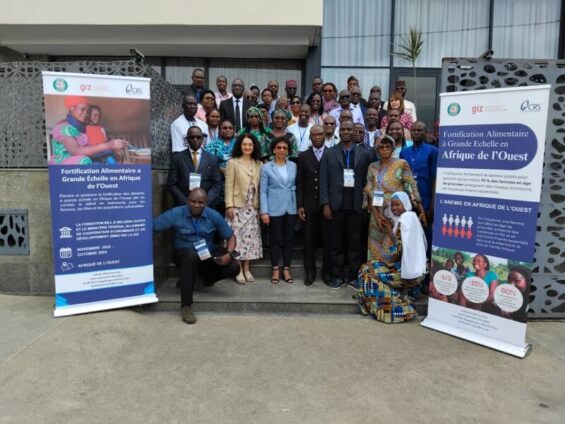More than 20 journalists and communicators from 17 Western and Central African countries have convened in Côte D'Ivoire for a capacity-building workshop aimed at amplifying the fight against micro-nutrient deficiencies across the continent.
The three-day event, which brings together media professionals, seeks to equip journalists and communicators with the tools needed to foster multisectoral and intersectoral collaboration in addressing the growing issue of micro-nutrient malnutrition in Africa.
The workshop, organized against the backdrop of alarming malnutrition rates, underscores the critical role of media in shaping public health narratives and driving policy change.
By empowering journalists, stakeholders aim to enhance advocacy and communication strategies that can help bridge the knowledge gap surrounding micro-nutrient deficiency—a major public health challenge in many African nations.
A Pressing Issue: The Malnutrition Crisis in West Africa
West Africa, in particular, faces a severe burden of micronutrient deficiencies. One out of two women of reproductive age in the region is anaemic, suffering from deficiencies in essential micro-nutrients such as iron, vitamin A, zinc, folate, and iodine.
This alarming trend has far-reaching implications, particularly for maternal health, child development, and the overall well-being of populations.
Children, too, are deeply affected. According to UNICEF, one in three children under the age of five in West Africa is stunted due to malnutrition, while 15% of infants are born with low birth weight.
The reliance on monotonous diets exacerbates this problem, with nearly 15% of the population undernourished and 78% of children under two years old failing to meet minimum dietary diversity requirements.
The region's nutrition crisis is compounded by a lack of food-based dietary guidelines and insufficient nutrient intake monitoring among populations. Although significant progress has been made in food fortification efforts—an approach that involves adding essential nutrients to staple foods—much work remains to be done.
Stakeholders are calling for continued expansion of fortification programs and stronger systems to address this pervasive issue.

Complex Challenges Demand a Collaborative Approach
The nutritional landscape in West and Central Africa is dire, and experts warn that the current pace of change is insufficient to meet the global nutritional targets set for 2030.
Malnutrition, particularly micronutrient deficiency, is a multifaceted problem that requires a comprehensive approach to resolve.

Stakeholders emphasize that addressing the problem requires multisectoral collaboration. Governments, the private sector, nongovernmental organizations, donors, and other key players must all play a role in the fight against malnutrition.
The media, in particular, has a crucial part to play in raising awareness, holding policymakers accountable, and promoting public engagement.
Ghanaian Journalists at the Forefront
Representing Ghana at the workshop are two seasoned journalists, Sarah Apenkroh with TV 3 and Ivy Setordjie with Joy News .
Their participation highlights Ghana’s commitment to contributing to regional efforts aimed at curbing malnutrition.
Both journalists will receive training on effective communication strategies that can help shape national conversations on nutrition and health, and ultimately, drive the policy changes needed to reduce micronutrient deficiencies in Ghana and beyond.
Latest Stories
-
BoG data: 66% of current national gold reserves amassed through Bawumia’s gold purchase programme
14 minutes -
Ghana responds to US Visa restriction
28 minutes -
There will be no power disruption on July 13 – Energy Ministry
38 minutes -
ISSER Director urges private sector support for research dissemination
1 hour -
Tackling inequality must be Ghana’s topmost development priority – Dr Emmanuel Akwetey
1 hour -
Today’s Front pages: Friday, July 11, 2025
2 hours -
Development must be just, inclusive, and participatory – GII boss at ISSER Report launch
3 hours -
There’ll be no military deployment in Ablekuma North rerun – Defence Minister
3 hours -
I’ll be 100% for Djokovic semi-final, says Sinner
4 hours -
Djokovic to face Sinner in tantalising semi-final
4 hours -
Wenger defends ‘fantastic’ Club World Cup
4 hours -
Showdown in Ablekuma North as voters return to the polls amid party rift and court drama
4 hours -
Let pensions work for Ghanaian businesses -Private Sector boss demands policy shift
5 hours -
Pensions must power industry, not just T-bills, says Nana Osei Bonsu
5 hours -
Third-tier pensions failing private sector – Nana Osei Bonsu laments
6 hours

